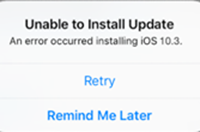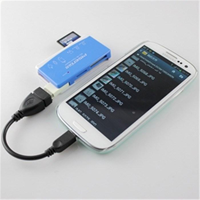Android Data Recovery
Mobile app engineers can utilize several strategic practices to improve Android application performance. Android mobile app development can be a complex, challenging process. In most cases, Android OS mobile app performance errors typically arise from slow rendering, application launch time, layouts, and power usage. Luckily, there are dozens of performance resolutions, support forms, and tactics to streamline quality across your Android app. Read on to learn how to enhance mobile Android application performance.
Improve Coding Practices
To guarantee efficient Android mobile app performance, you need to constantly look for ways to improve your coding practices. The best Android applications are coded using advanced, popular languages like C or C++. If you are coding using these languages, you should additionally take advantage of comprehensive, open source C and C++ package managers. Decentralized, multi-platform package managers provide a secure location to create and share all your native binaries. Using a C/C++ package manager, you can increase flexibility across all of your platforms, build systems, and packages. At the same time, you can increase speed throughout your binaries and automated dependency management. By thoroughly assessing your codes readability and maintainability, you can effectively speed up the application and prevent future performance errors. Be sure to consistently look for ways to improve your application coding practices.
Conduct Frequent Tests
Frequent testing is essential to enhance the quality and performance of mobile Android applications. Testing ensures that your application is performing up to efficient standards. If you are using a C/C++ package manager, you can utilize the AppVeyor cloud service to effectively configure and test your project. You need to test your project, as well as its individual binaries. AppVeyor cloud service provides the efficient support needed to run the tests. By conducting frequent tests, you can guarantee that your Android application is suitable for various devices, operating systems, and volume levels. To effectively enhance your mobile Android application performance, be sure to conduct frequent tests.
Minimize Unnecessary Virtuals
To substantially enhance the performance of your mobile Android application, you need to minimize unnecessary virtuals within your app. The best Android mobile app engineers prefer static content over virtual. In many cases, static content makes your application upwards of ten-percent faster. When access is not needed to object fields, make its content static. Be sure to use a static final for your constants in order to guarantee consistent performance of your application. To further enhance your results, you can enable debugging with Android code. Be sure to minimize unnecessary virtuals in order to enhance the performance of your Android mobile app.
Manage Memory Leaks
Android application engineers consistently look to manage memory leaks in order to enhance app performance. A memory leak occurs when application garbage collectors are unable to gather the allocated memory. The first step to eliminate memory leaks throughout your application is to avoid static references. Then, you need to deactivate registration across your events, listeners, and handlers. At the same time, you need to consistently preform sophisticated code reviews and implementations to ensure accurate performance. These consistent steps ensure that you understand the architecture of your Android mobile app. Moreover, it creates a better user experience for your app and devices. Be sure to consistently look for strategic ways to manage memory leaks across your application.
Measure Your Results
To effectively enhance your Android app performance, it is integral to consistently measure your results. For Android applications performance to effectively be optimized, you must identify existing performance issues that must be solved. Without comprehensive performance measurement practices, you also will not be able to analyze the results you derive. Constantly look for advice and reviews on Android community support forums for additional suggestions on performance issues to address. Following the configuration of your mobile application, set specific routines to measure exceptional performance. To guarantee consistent performance across your new Android app, be sure to constantly measure your results.
There are several strategic tactics to improve performance within your mobile Android app. First, you need to improve your coding practices. Consider using a package manager to securely configure and store all your native binaries. Conduct frequent tests on the stages of the application you configure. At the same time, you need to minimize unnecessary virtuals in favor of static content. Moreover, look for ways to manage memory leaks across your applications. Finally, be sure to constantly document performance errors and measure your results. Consider the points mentioned above to learn how to enhance mobile Android application performance.





















To improve your android mobile app performance you can can also do the some points given blog:
1. Remove Unwanted Apps
2. Disable Unnecessary Apps
3. Update Apps
For more details you can contact android app development company